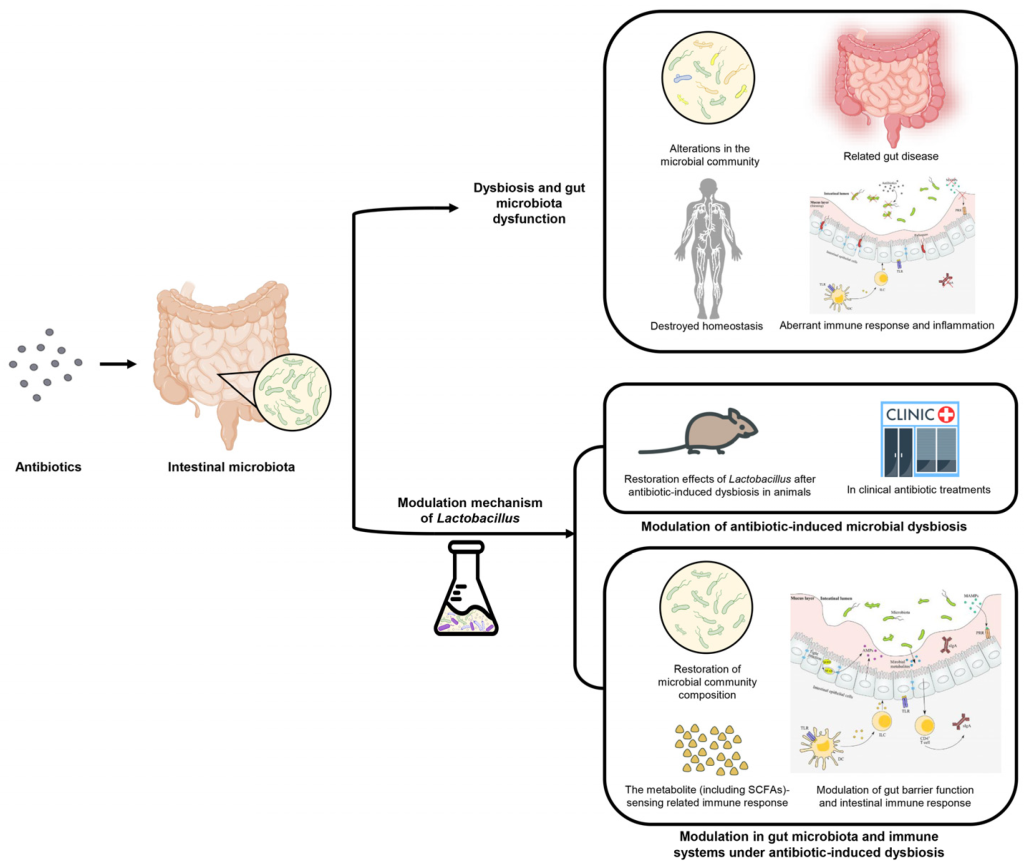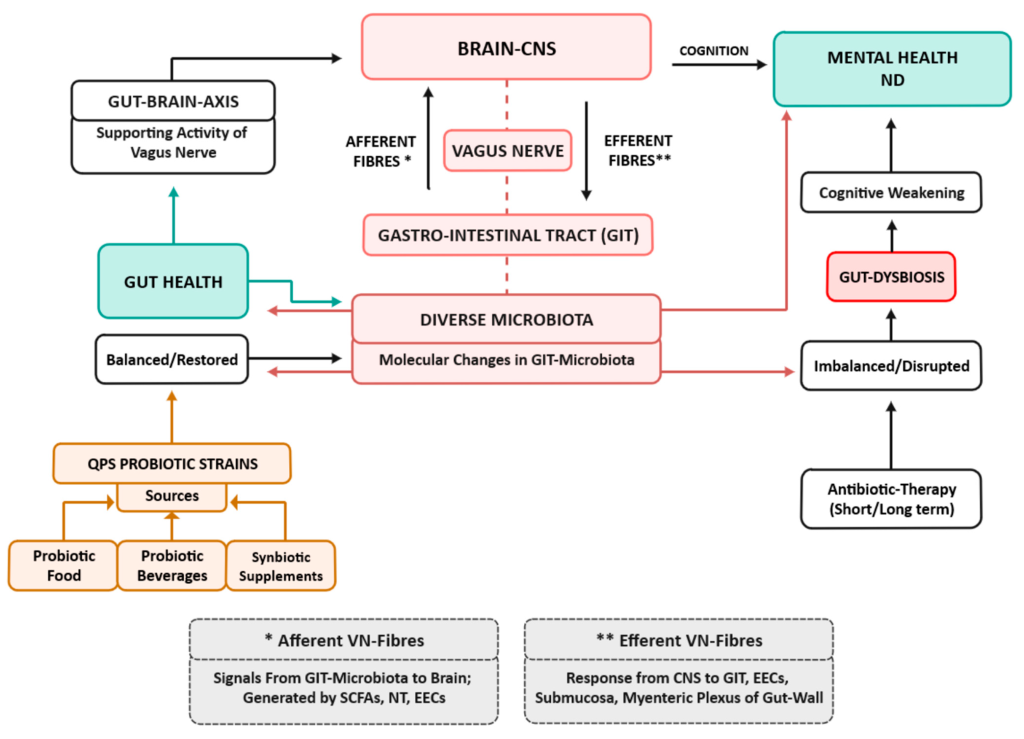Do Topical Antibiotics Harm Gut Flora? Unveiling The Truth And Taking Action
Do Topical Antibiotics Affect Gut Flora?
Introduction
Dear Flora Enthusiast,
3 Picture Gallery: Do Topical Antibiotics Harm Gut Flora? Unveiling The Truth And Taking Action



Welcome to this comprehensive article that aims to shed light on the intriguing topic of whether topical antibiotics affect gut flora. In this increasingly health-conscious society, it is crucial to understand the potential impact of medications on our body’s delicate ecosystems. This article will delve into the various aspects surrounding the use of topical antibiotics and their potential effects on gut flora, providing you with valuable insights and knowledge.

Image Source: mdpi.com
Our gut flora, also known as the gut microbiota, is a complex community of microorganisms residing in our digestive tract. These microorganisms play a vital role in maintaining our overall health and well-being. The use of antibiotics, both orally and topically, has been a subject of concern due to their potential to disturb this delicate balance.
In this article, we will explore the what, who, when, where, why, and how of using topical antibiotics and their impact on gut flora. Additionally, we will discuss the advantages and disadvantages of topical antibiotics, address frequently asked questions, and provide a conclusion that empowers you to make informed decisions regarding your health.
What Are Topical Antibiotics?
Topical antibiotics are medications applied directly to the skin to treat various bacterial infections. They come in various forms, such as creams, ointments, gels, or lotions. These antibiotics work by inhibiting the growth and spread of bacteria on the skin’s surface, effectively eliminating the infection.

Image Source: mdpi.com
⭐️ Topical antibiotics are widely used for treating skin conditions such as acne, impetigo, and folliculitis.
Who Uses Topical Antibiotics?
Topical antibiotics are commonly prescribed by dermatologists and healthcare professionals to individuals suffering from bacterial skin infections. They are suitable for people of all ages, including children and adults. However, it is essential to follow the prescribed dosage and duration to prevent potential complications.

Image Source: mdpi-res.com
⭐️ Topical antibiotics are particularly beneficial for individuals with localized skin infections and those who prefer not to take oral antibiotics.
When Are Topical Antibiotics Used?
Topical antibiotics are used when there is a need to eliminate bacterial infections on the skin’s surface. They are generally recommended for mild to moderate infections. In cases of severe infections or systemic infections, oral or intravenous antibiotics may be required for effective treatment.
⭐️ Topical antibiotics are most commonly used as a first-line treatment for acne and minor skin infections.
Where Can Topical Antibiotics Be Applied?
Topical antibiotics can be applied to various parts of the body, depending on the location of the bacterial infection. They are safe to use on the skin, excluding open wounds or areas with excessive irritation. Common areas of application include the face, back, chest, arms, and legs.
⭐️ Topical antibiotics should not be applied to mucous membranes, such as the eyes, nose, mouth, or genitals.
Why Might Topical Antibiotics Affect Gut Flora?
The potential impact of topical antibiotics on gut flora lies in their mechanism of action. Although topical antibiotics are primarily applied to the skin, a small percentage can be absorbed systemically, potentially affecting various bodily functions, including gut health.
⭐️ The alteration of gut flora by topical antibiotics may occur due to their systemic absorption and subsequent disruption of the delicate balance of microorganisms in the gastrointestinal tract.
How Do Topical Antibiotics Affect Gut Flora?
The exact mechanisms by which topical antibiotics affect gut flora are not yet fully understood. However, studies suggest that systemic absorption of topical antibiotics can lead to alterations in the diversity and composition of gut microbiota, potentially resulting in dysbiosis.
⭐️ Dysbiosis refers to an imbalance in the gut flora, characterized by a decrease in beneficial bacteria and an increase in potentially harmful bacteria.
Advantages and Disadvantages of Topical Antibiotics
Advantages
1️⃣ Effective in treating localized skin infections.
2️⃣ Targeted approach minimizes systemic side effects.
3️⃣ Convenient and easy to apply.
4️⃣ Can be used as an alternative to oral antibiotics.
5️⃣ Can help prevent the development of antibiotic resistance.
Disadvantages
1️⃣ Potential disruption of gut flora and the risk of dysbiosis.
2️⃣ Limited efficacy against deep-seated or severe infections.
3️⃣ Possible skin irritation or allergic reactions.
4️⃣ In some cases, may contribute to the development of antibiotic resistance.
5️⃣ Requires careful adherence to dosage and application instructions.
Frequently Asked Questions
1. Can topical antibiotics cause digestive issues?
While topical antibiotics are primarily intended for external use, systemic absorption can occur. This absorption can potentially disrupt gut flora and lead to digestive issues.
2. Can topical antibiotics lead to antibiotic resistance?
There is a risk of antibiotic resistance with the use of any type of antibiotics, including topical antibiotics. It is essential to use them judiciously and follow healthcare professionals’ instructions to minimize this risk.
3. Are topical antibiotics safe for long-term use?
Long-term use of topical antibiotics should be done under the guidance of a healthcare professional. Prolonged use may increase the risk of antibiotic resistance and dysbiosis.
4. Can topical antibiotics affect other body systems?
Topical antibiotics have the potential to affect other body systems if systemically absorbed. However, the extent of this impact varies depending on the specific antibiotic and individual factors.
5. Are there natural alternatives to topical antibiotics?
Some individuals may prefer natural alternatives to topical antibiotics, such as essential oils or herbal remedies. However, it is crucial to consult a healthcare professional before using any alternative treatments.
Conclusion
In conclusion, the use of topical antibiotics can potentially affect gut flora due to their systemic absorption. While they are effective in treating localized skin infections, it is crucial to weigh the advantages and disadvantages before using them. Understanding the potential impact on gut flora and considering alternative treatment options when appropriate is important for maintaining overall health.
By staying informed and making informed decisions, you can take control of your health and well-being. Remember to consult with healthcare professionals for personalized advice tailored to your specific needs and circumstances.
Final Remarks
Plant lover, it is important to note that this article provides general information and should not replace professional medical advice. The effects of topical antibiotics on gut flora may vary depending on individual factors and specific circumstances. Always consult with a healthcare professional before starting or discontinuing any medication. Your health and well-being deserve the utmost care and attention.
This post topic: Flora

